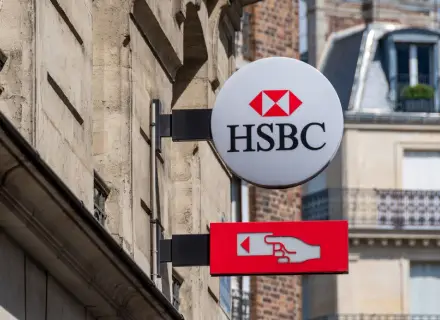HSBC Holdings is moving forward with a new plan that will concentrate on Asia and the Middle East regions while reducing its investment banking operations in the West. The banking behemoth has already led the MENA (Middle East and North Africa) region in ECM and DCM for the last four years running, and it hopes to build on its success in MENA to make a big impact in Asia.
“We will retain more focused M&A and equity capital markets capabilities in Asia and the Middle East and will begin to wind down our M&A and equity capital markets activities in the United Kingdom, Europe, and the United States, subject to local legal requirements,” the bank said in a statement.
CEO Georges Elhedery, who replaced Noel Quinn in September 2024, is now on a mission to overhaul HSBC’s organisational machinery, by cutting costs, streamlining operations, strengthening the bank’s leadership in its core competencies and improving accountability as well as to tighten its focus on Asia, where it earns the bulk of its profit.
Alex Marshall, Managing Partner at consultancy firm CIL, said, “HSBC has a commanding position in MENA equity capital markets, whereas it has struggled to achieve equivalent status in the US in particular. The bank’s ranking in M&A advisory work has been declining over the long term. It’s a fiercely competitive market, and with deal volumes in Europe having been depressed in recent years, maybe it is no longer worth prioritising this region.”
LSEG data indicates that HSBC earned USD 107.3 million, or 7% of the total fee pool, in 2024, the highest amount of investment banking fees in the MENA region.
In a recent interview with Zawya, Khaled Darwish, Managing Director – Head of CEEMEA Debt Capital Markets at HSBC, said, “We have substantial issuances on local currency, especially in the Saudi market. If you include issuances in local currency, HSBC MENA tops league tables acting on over $15 billion of credited bond and sukuk offerings in 2024.”
According to LSEG data, the bank’s USD 2.3 billion in proceeds from MENA ECM deals placed it second only to EFG Hermes.
“HSBC will keep its debt capital markets and leveraged acquisition finance operations globally,” said Michael Roberts, CEO HSBC Bank, in a staff memo, which also acknowledged how “unsettling” the news would be for bankers who advise on dealmaking and corporate equity raising, such as through initial public offerings (IPOs).
Details on job cuts, cost cuts and human resource deployment to other financing businesses (where HSBC considers it better to compete with American rivals who have dominated investment banking’s most lucrative segments for years) have remained unclear so far.
During an interaction with Reuters, Shore Capital analyst Gary Greenwood said, “I’ve lost count of the number of times HSBC has been in and out of ECM in the UK. It never seems to succeed. At the end of the day, these are expensive businesses to run and if you are not winning the business and generating the fees then it’s easy to lose money.”
Some commentators have also described the timing of HSBC’s decision as “surprising,” given capital markets activity is expected to grow in the near term, fuelled by expectations of interest rate cuts and pro-growth policymaking across the West, in the wake of United States President Donald Trump’s return to power.
RBC Capital Markets analyst Ben Toms said, “The bank is being run with a medium to long-term view. Geographically, the move reflects the continued shift from West to East, where growth and profitability are higher.”

